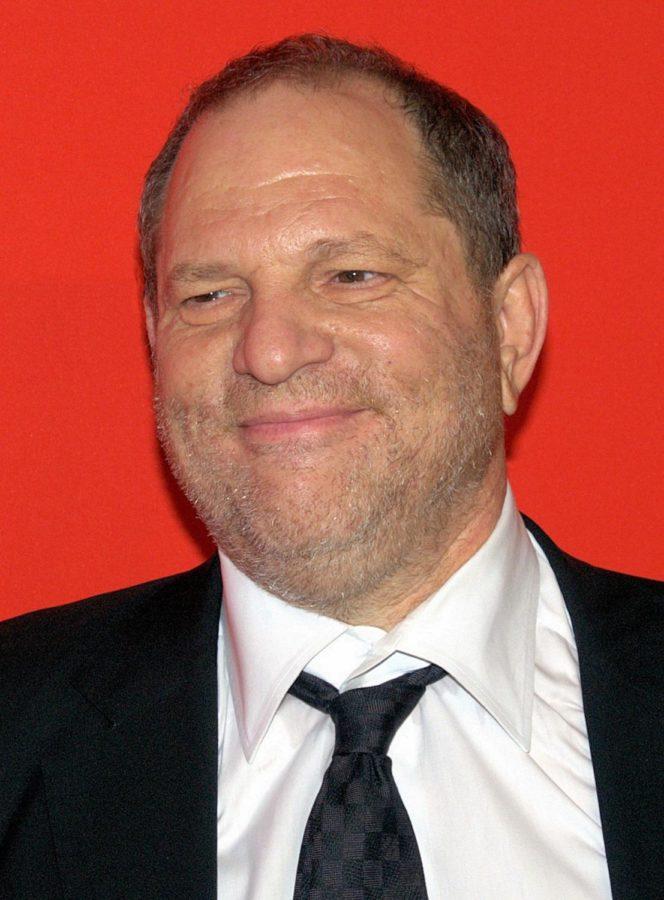Tyrrell: Context in the #MeToo movement is important
harvey weinstein
January 17, 2018
In recent months the news cycle has been inundated with sexual misconduct allegations against men (and women) in nearly every field of celebrity. The accusers have been anonymous or as famous as the perpetrator; the incidents took place decades ago or within the past month.
The crimes have ranged from harassment to rape. The details of each case are intimately personal, and therefore deserve personal attention. Yet when a new allegation arises, we’re content to treat it as synonymous with the others, ignoring individual nuances in favor of bludgeoning each case with the sledgehammer of public denunciation and career destruction.
In some cases, this reaction is not severe enough. But in others, it’s far stronger than what the situation warrants, and the problem with that is it turns a very important and valuable conversation about sexual assault into — yes, I’ll say it — a potential witch hunt.
No allegation is complete without context. Publicly accusing someone of any type of sexual misdemeanor means that they will become a part of the larger conversation we are currently having, and therefore it’s important we get the details right. And let me clarify: When I say details, I don’t mean questions like “What was she wearing?” or “How much did she have to drink?”
I mean things like “Was it sexual harassment, abuse or assault?” Because they are not the same thing. Did the behavior in question occur repeatedly, or was it a single incident? A lone incident that took place years ago is different than a repeated pattern of behavior.
In other words, context is important. Ignoring that context and giving all accusations equal treatment discredits the #MeToo movement, the women who have bravely spoken out about their own experiences, and potentially creates more unnecessary victims.
Here’s an example. When we look at a person like Harvey Weinstein or USA Gymnastics team doctor Larry Nassar, who have been accused of patterns of sexual harassment and abuse spanning decades by over a dozen women, it’s evident that they didn’t simply make a mistake once or twice. They have demonstrated repeated predatory behavior and been accused of everything from harassment to rape. They should lose their jobs, they should lose our respect and they should face jail time.
In contrast, the allegations against senator Al Franken, who has been accused by eight women of groping or kissing them inappropriately in instances taking place 10-18 years ago, merits a different reaction. Franken’s behavior was abhorrent. But the nature of the harassment, time frame it took place in and Franken’s resignation of his seat in the Senate makes it clear that some growth has occurred. Our conversation about sexual harassment needs to make room for that growth. How much room, I don’t know. But that question is one that needs to be answered if we are to keep the conversation intelligent and fair.
The issue of sexual harassment takes place in shades of gray. As we continue our public discussion, we need to address and define those shades of gray instead of pretending like they don’t exist. It’s easy to get swept up in the righteous anger of the movement, especially on platforms like Twitter and Facebook. But the situation of Aziz Ansari is an example of what can happen if we disregard the shades of gray in each situation.
On Jan. 13, Babe published one woman’s account of a date she had with Ansari. The woman, who spoke under the pseudonym Grace, graphically described her uncomfortable sexual encounter with the comedian. How he persisted, despite her verbal and nonverbal cues that she was uncomfortable, and how she ultimately left his apartment in tears. It’s easy to read the account and relate with Grace. Many, many women understand the feeling of confusion, disappointment and helplessness that she experienced.
But at the end of the day, we have to see the encounter for what it is: another example of a guy who didn’t get consent, but who also probably didn’t have malicious intentions. Like many cases, Grace’s account falls in the gray area. We cannot act like what Ansari did is comparable to what Weinstein did, or even like what Franken did. Should he have recognized the signs that Grace was uncomfortable? Yes. Do we need to do a better job of teaching boys (and men) what consent means? Definitely. But does Ansari deserve the public humiliation and professional backlash he’s received? Does he deserve to lose his career? Absolutely not.
The topic of sexual abuse and assault is complex. The way I see it, there are two issues being addressed right now: The pattern of sexual abuse by men in power, which is the issue dominating the news, and the far less malicious yet more commonplace issue of consent. I believe that the story of Grace and Ansari falls in the second category. Consent and what constitutes it is a very important conversation to have, but conflating it as the same issue taking place in the Weinstein or Franken scandals is dangerous and just plain wrong.
The culture of victim-blaming and slut-shaming needs to end, but we also can’t address sexual misdemeanor and misconduct situations with the same reaction we have for sexual abuse. Few situations are black and white, and to ignore the nuances of each allegation is to discredit the women speaking out.
The past matters. Holding people accountable matters. Speaking truth to power matters. But the fact that this conversation is so important, that it matters so much, is exactly why we have to get it right. #MeToo is not a witch hunt. But if we allow ourselves to get so swept up in rage that we can ignore the shades of gray in the issue, we will end up burning at the stake not just predators, but innocent people.







